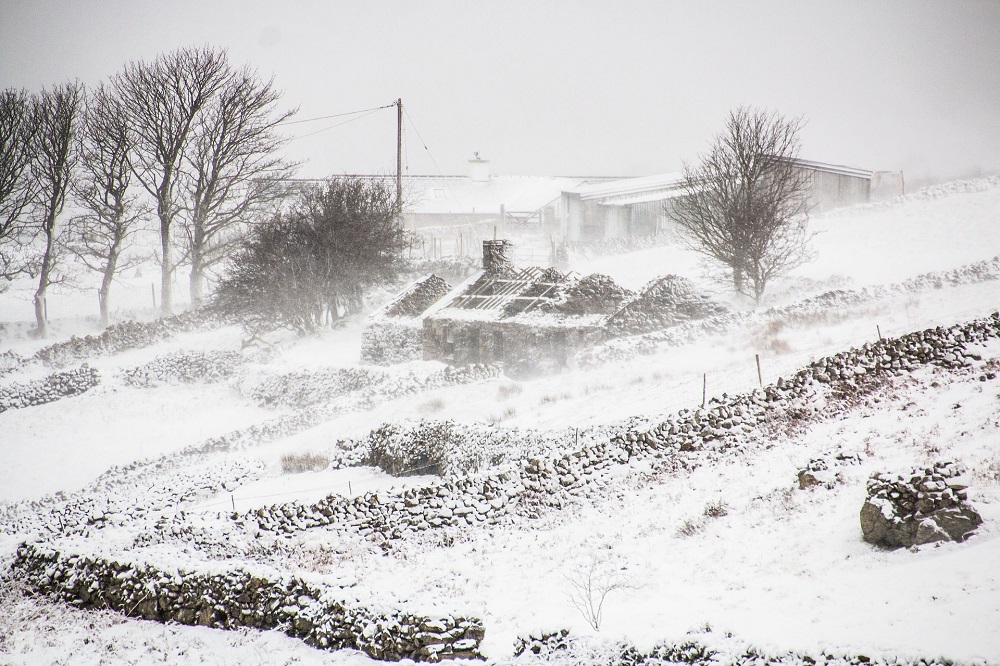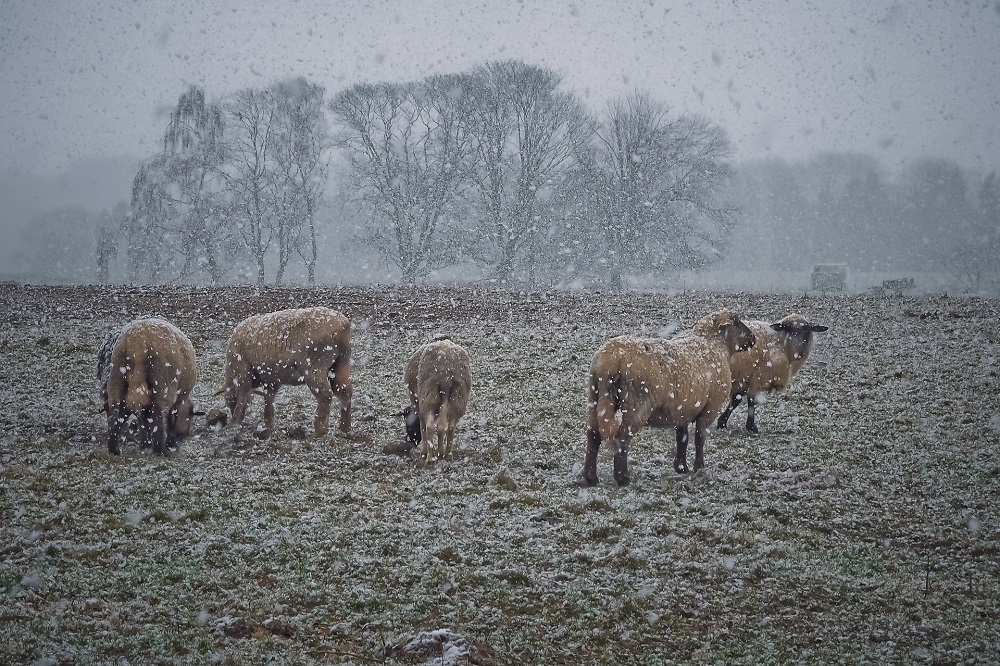Winter is coming for rural Wales – so we need to listen to Welsh farmers on Brexit

David Elias
Hill farming in Wales is not viable. Farmers know this, and so does everybody else. Without some sort of subsidy they would be out of business tomorrow.
There is, therefore, a lot of concern amongst farmers about Brexit, particularly as it will mean the end of the European Union’s Common Agricultural Policy.
As this is area of responsibility devolved to Wales, the Welsh Government has put forward some ideas.
The most radical of these is to scrap the Basic Payment Scheme, which is the cash per hectare that all farmers receive for doing, frankly, very little for society and the environment.
It is proposed to divert this money into paying farmers (and foresters) to deliver ‘public goods’.
These are things like flood prevention, encouraging wildlife, storing carbon, soil improvement and woodland extension – all of which society needs urgently, but for which there are no commercial markets.
Farmers are understandably concerned, because in effect the Basic Payment Scheme acts as a safety net to keep them solvent as markets and the weather fluctuate.
Consequently, their response to the Welsh Government’s proposals has ranged from nervous to downright hostile.
Without the Basic Payment Scheme they fear many will go out of business.
In the excruciating jargon used in these matters a lot of farms no longer have enough ‘natural capital’ from which to deliver the ‘public goods’ and so would struggle to attract payments.
The habitats and wildlife have gone. I heard one source quoted as saying that 30% of farmers in Wales will go bust if these proposals are adopted.
Concepts such as ‘ecosystem services’ can seem like ideas that are being imposed upon farmers from an ‘urban’ culture, and it is true that mostly they have not arisen from within the farming community, who have been focused food production.
Such ideas can seem threatening, especially as the language used is often so alien.
These proposals are also worrying for the wider Welsh community because farmers and their families are the backbone of rural society here.
They are the continuity that ensures a particular identity associated with Welsh language and culture prospers from one generation to the next.
A 30% decrease, or anything like it, in farming families would be a cultural disaster.
Who knows if that is an accurate assessment – there is a lot of fear around.
Better
However, these are bold proposals by the Welsh Government and I do applaud them for grasping the nettle – but no doubt they have found that it stings.
The European Union’s Common Agricultural Policy has been an unmitigated disaster for wildlife, so post-Brexit there is an opportunity to devise a better agricultural and countryside policy.
During and after the Second World War farmers and foresters were urged to produce more, and they responded magnificently; we now produce far more food and timber than ever before.
As a result, farmers have come to come to think of food production as being the only proper purpose of their business.
But sadly the intensification of farming and forestry has taken a toll on the wildlife. As one of the small army of naturalists who, since the 1970s, has been mapping and surveying, I know the truth of that and trust the integrity of the results.
There is insufficient space here to go into the whole sad litany but one stark example will serve. When I arrived in Bala in 1983 to work on the Berwyn Mountains there were approximately 240 pairs of curlew – now I would be surprised if there are 10.
The causes of this catastrophic decline are not yet clear but it illustrates why conservationists are so worried.

Crossroads
In view of all this it seems to me that a post Brexit policy must satisfy some key objectives:
- Keep small and medium-sized farms in business for the sake of our collective culture.
- Ensure that we continue to produce good quality food from the best agricultural land and timber from our commercial forests.
- Manage the land in ways that help our impoverished wildlife to recover on farmland and in forests.
- Provide those ‘ecological services’ that are so desperately needed in the face of environmental degradation and climate change.
The markets, particularly for food and timber, can take care of some of that but taxpayers must be prepared to foot the bill for the rest.
Fulfilling these objectives is a tall order but I think it could be done, given sufficient political will.
Many farmers are willing to deliver what is required but they need encouragement.
To date, the hands-off, bureaucratic approach of the current agri-environment schemes have left them discouraged and disenchanted.
I am also concerned that the Welsh Government’s proposals have, inadvertently, polarised opinion when what is needed is co-operation.
Conservationists need to be seen to want farmers to prosper and farmers need to show that they want wildlife to thrive. We need to listen and learn from one another.
The consultation on the Welsh Government’s paper ‘Brexit and Our Land’ has recently closed, and I hope they are listening carefully to the responses.
If we do not seize this moment together our country will be forever impoverished and future generations will rightly hold us to account.
The Welsh countryside is at a crossroads.
Support our Nation today
For the price of a cup of coffee a month you can help us create an independent, not-for-profit, national news service for the people of Wales, by the people of Wales.





